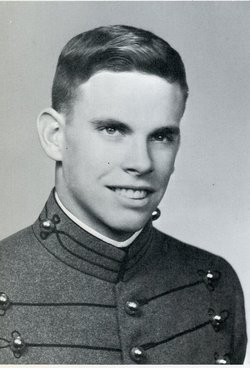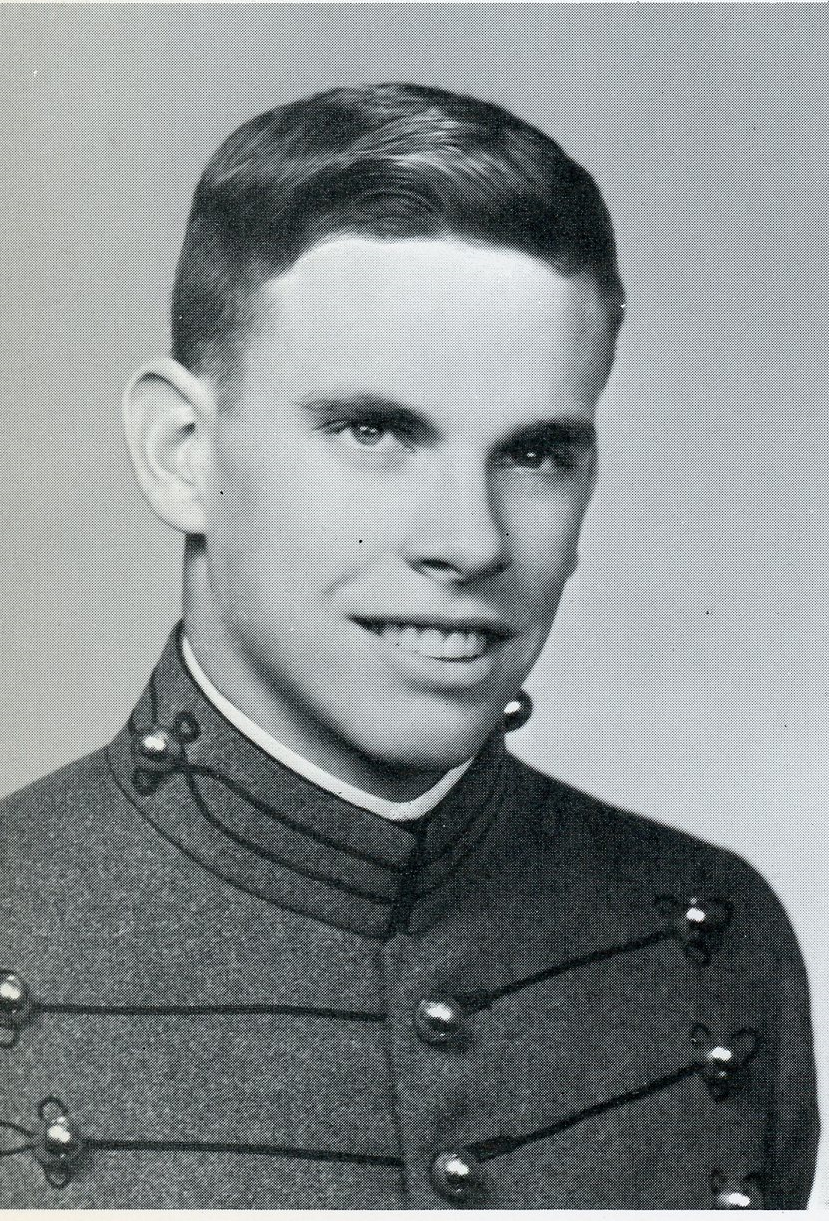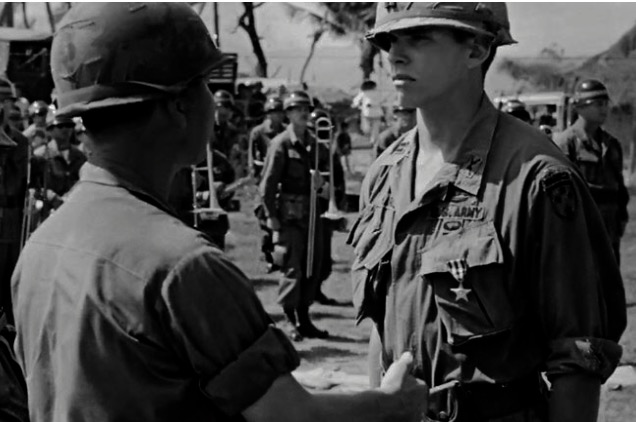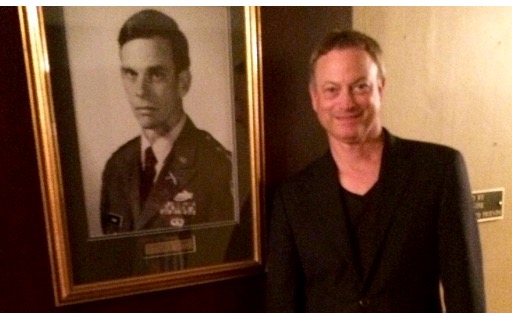26524 Boyd McCanna Harris
B-PA: A-IL: Inf: 9Div RVN 66-68 (BSM-PH): HqCENTAG 68: 1/20Inf AmericalDiv RVN 69-70 (SS-CM): TIS 71 (S&F 71-73): UNC 73 (MAT 75): Tac USMA 75-78: Hq1/501AIR 78-80: CGSC 80, S&F 81: D-Denver CO 13Oct83: Ob-Jun86
http://apps.westpointaog.org/Memorials/Article/26524/
LIFE IS NEVER long enough. Death inevitably comes to us all, its timing dictated by forces beyond our understanding or control. And so, driven by the sense of our own human frailty, we not only exist but strive. Each in our own way seeks a unique legacy to mark our journey through life. Death is always tragic, but it is most tragic when it signals the end of a wasted or misspent life. In a sense, the only lasting victory comes from a life well-led, however long it may be in years.
Lieutenant Colonel Boyd M. Harris understood all this, and as a result lived each day with confidence, enthusiasm and joy. His death from cancer on 13 October 1983 deeply shocked and saddened us all. His life of 39 years was, by any measure, far too short. Taken from us was a devoted husband and father, a trusted and loyal classmate, a dear and cherished friend, a gifted and truly professional soldier.
But while we still grieve over his death, we also rejoice in his life. For in the relatively few years he had, Mac Harris did create a legacy, one that transcends his own life and will survive us all. His perceptive concepts of positive and caring leadership are now the official doctrine of the United States Army. His teachings have helped us recover from the shattering impact of Vietnam and are now shaping the Army that will protect America's freedom into the 21st century.
Born in Philadelphia on 20 September 1944 and raised in Pontiac, Illinois, Mac was the oldest son of Boyd T. and Jane Harris, each of whom he respected and loved profoundly. He entered the United States Military Academy on 2 July 1962 and graduated on 8 June 1966 as an Infantry second lieutenant. Those of us who shared those cadet years with Mac remember the unique traits that, fully developed, were later to serve him and the Army so well. The 1966 Howitzer alluded to a "devil-may-care attitude and love of adventure" and, at the same time, noted "gentle characteristics that we all respect." Strong and vigorous, yet understanding and compassionate—that was Mac Harris. He embraced the positive and rejected the negative within cadet life. His motivation was not hope for personal gain, but a desire to learn and ultimately to serve. He led not through coercion but by example.
Looking back with the wisdom of hindsight, I see that even then Mac, as a cadet, was teaching to us, his classmates, that an effective leader must first be a compassionate and honorable human being. During his 17 years of subsequent active duty, he continued to both lead and teach leadership—activities that he saw as inextricably linked and mutually reinforcing.
Following graduation and Ranger training, Mac Harris went to Vietnam, serving with distinction as a rifle platoon leader with the 9th Infantry Division in the Central Highlands. Thereafter, he rotated to Germany for a one-year assignment as Headquarters company commander, Central Army Group, NATO. Then, after Airborne School, it was back again to Vietnam in 1969 for duty as a company commander and subsequently as S1/S3 within the 11th Infantry Brigade of the 23rd Infantry Division (Americal). Awards of the Silver Star, Bronze Star (with two Oak Leaf Clusters), Purple Heart, ARCOM, and Vietnamese Cross of Gallantry stand as witness to his confidence and dedication.
Tempered and tested in the crucible of combat, Mac's leadership skills were then put to work at Fort Benning. After the Infantry Advanced Course, he stayed with the faculty as a leadership instructor, teaching in the Infantry School and attending the Center for Creative Leadership (Greensboro, North Carolina). From there and as preparation for assignment to West Point, Mac studied at the University of North Carolina, earning a master's in psychology and completing work towards a Ph.D.
While at graduate school, the most important event of his life (as he so often happily remarked) occurred—his marriage to Anne, his beloved wife, on 26 January 1974. No two people could have shared, as husband andwife, more than did they. Partners in the fullest sense, Mac and Anne truly enriched the Academy community during the 1975-78 period, when he served first as a tactical officer and then on the faculty of the Department of Behavioral Sciences and Leadership.
From West Point, Mac Harris went on to the 101st Airmobile Division (Fort Campbell) for assignments as the division inspector general and subsequently as operations officer and executive officer of the 501st Infantry Battalion. There, daughter Kathryn was born, a living testament to her parents' love. Next followed a posting in 1980 to Fort Leavenworth and the C&GSC, first as a student and then as one of the original faculty of the Center for Leadership and Ethics (now the Center for Army Leadership). It was in the latter capacity that Mac Harris was entrusted with authorship of Field Manual 22-100, Military Leadership—an assignment which proved to be a continuous test of both his professional perseverance and moral courage. It was that task, recognized by a Legion of Merit, which consumed his last two years of life. But, it was also that task which, now completed, lets his experience and knowledge live on as a beacon for those who follow.
As embodied in FM 22-100, the leadership philosophy of Mac Harris—like all great truths—is simple in its brilliance. As he saw it, the unchanging constant in battle is the human dimension: "Confidence, morale, courage, will to fight, the leadership required to inspire these qualities of the human spirit." As a result, success as a commander demandsa thorough understanding both of self and those one seeks to lead. The ultimate objective is mastery of certain things that a competent leader must be, must know and must do. Knowledge of self and of human nature must be complemented by knowledge of one's job and unit. Actions must be shaped so as to provide direction, to implement and to motivate. Above all, a leader must be a model for his followers, one whose beliefs and values reflect and inspire integrity, candor and commitment.
Mac Harris truly embodied that which he taught. He was insatiable in efforts to improve his understanding of human behavior, and to enhance his personal counseling skills. He struggled to show that disciplined, cohesive military units are built by positive motivation, trust and mutual respect. He never lost sight of the fact that it is followers that makea leader. He epitomized, in all he did, his core belief that "honorable character is the moral fiber . . . something the troops sense . . . the most important part of leadership." Above all, he was dedicated to selfless service, putting his own needs secondary to those of the Army and his soldiers. In essence, he lived, reflecting his own postulate that as a leader, "You are not given authority, status and position as a personal reward. . . . You are given them so that you may be of greater service to your subordinates, your unit and your country."
The unpretentious man he was, Mac Harris would not have chosen, as did the legendary Alexander, a short but glorious life. In fact, he would have been embarrassed by such intimations of personal reward. Imbued with a lust for living, he would have chosen instead a long life as husband to Anne and father to Katy, and a career of selfless service. But, the choice was not his. Instead, to thishonest and forthright man fell the task of articulating the leadership philosophy and doctrine for our future Army. Men are mortal and die; noble ideals and ideas are immortal. Mac Harris was a man of such ideals and ideas, and that is his legacy.
The legacy lives in each of us who learned from Mac in years past. It will be commemorated each May when, in the name of Boyd M. Harris, an award is given to the graduating West Point cadet who has most excelled in the study of military leadership. That legacy will also endure as thousands of soldiers in future years read FM 22-100, following Mac Harris so that they might lead others.
More than two years have now passed since the death of Mac Harris. Time has now begun to temper our pain and grief. But, time will never diminish our pride in having known him, nor will it fill the emptiness that persists. Mac, my friend: Rest, knowing that we miss you. Rest, knowing that our Army is better because of you. Rest, knowing that we who remain will carry on. Rest in peace, with our love.
Jim Gardner USMA'66
LTC, USAR
See brother-in-law Gary Sinise's memory of Mac here: https://www.garysinisefoundation.org/blog/2014-08-22-welcome-home-mac
26524 Boyd McCanna Harris
B-PA: A-IL: Inf: 9Div RVN 66-68 (BSM-PH): HqCENTAG 68: 1/20Inf AmericalDiv RVN 69-70 (SS-CM): TIS 71 (S&F 71-73): UNC 73 (MAT 75): Tac USMA 75-78: Hq1/501AIR 78-80: CGSC 80, S&F 81: D-Denver CO 13Oct83: Ob-Jun86
http://apps.westpointaog.org/Memorials/Article/26524/
LIFE IS NEVER long enough. Death inevitably comes to us all, its timing dictated by forces beyond our understanding or control. And so, driven by the sense of our own human frailty, we not only exist but strive. Each in our own way seeks a unique legacy to mark our journey through life. Death is always tragic, but it is most tragic when it signals the end of a wasted or misspent life. In a sense, the only lasting victory comes from a life well-led, however long it may be in years.
Lieutenant Colonel Boyd M. Harris understood all this, and as a result lived each day with confidence, enthusiasm and joy. His death from cancer on 13 October 1983 deeply shocked and saddened us all. His life of 39 years was, by any measure, far too short. Taken from us was a devoted husband and father, a trusted and loyal classmate, a dear and cherished friend, a gifted and truly professional soldier.
But while we still grieve over his death, we also rejoice in his life. For in the relatively few years he had, Mac Harris did create a legacy, one that transcends his own life and will survive us all. His perceptive concepts of positive and caring leadership are now the official doctrine of the United States Army. His teachings have helped us recover from the shattering impact of Vietnam and are now shaping the Army that will protect America's freedom into the 21st century.
Born in Philadelphia on 20 September 1944 and raised in Pontiac, Illinois, Mac was the oldest son of Boyd T. and Jane Harris, each of whom he respected and loved profoundly. He entered the United States Military Academy on 2 July 1962 and graduated on 8 June 1966 as an Infantry second lieutenant. Those of us who shared those cadet years with Mac remember the unique traits that, fully developed, were later to serve him and the Army so well. The 1966 Howitzer alluded to a "devil-may-care attitude and love of adventure" and, at the same time, noted "gentle characteristics that we all respect." Strong and vigorous, yet understanding and compassionate—that was Mac Harris. He embraced the positive and rejected the negative within cadet life. His motivation was not hope for personal gain, but a desire to learn and ultimately to serve. He led not through coercion but by example.
Looking back with the wisdom of hindsight, I see that even then Mac, as a cadet, was teaching to us, his classmates, that an effective leader must first be a compassionate and honorable human being. During his 17 years of subsequent active duty, he continued to both lead and teach leadership—activities that he saw as inextricably linked and mutually reinforcing.
Following graduation and Ranger training, Mac Harris went to Vietnam, serving with distinction as a rifle platoon leader with the 9th Infantry Division in the Central Highlands. Thereafter, he rotated to Germany for a one-year assignment as Headquarters company commander, Central Army Group, NATO. Then, after Airborne School, it was back again to Vietnam in 1969 for duty as a company commander and subsequently as S1/S3 within the 11th Infantry Brigade of the 23rd Infantry Division (Americal). Awards of the Silver Star, Bronze Star (with two Oak Leaf Clusters), Purple Heart, ARCOM, and Vietnamese Cross of Gallantry stand as witness to his confidence and dedication.
Tempered and tested in the crucible of combat, Mac's leadership skills were then put to work at Fort Benning. After the Infantry Advanced Course, he stayed with the faculty as a leadership instructor, teaching in the Infantry School and attending the Center for Creative Leadership (Greensboro, North Carolina). From there and as preparation for assignment to West Point, Mac studied at the University of North Carolina, earning a master's in psychology and completing work towards a Ph.D.
While at graduate school, the most important event of his life (as he so often happily remarked) occurred—his marriage to Anne, his beloved wife, on 26 January 1974. No two people could have shared, as husband andwife, more than did they. Partners in the fullest sense, Mac and Anne truly enriched the Academy community during the 1975-78 period, when he served first as a tactical officer and then on the faculty of the Department of Behavioral Sciences and Leadership.
From West Point, Mac Harris went on to the 101st Airmobile Division (Fort Campbell) for assignments as the division inspector general and subsequently as operations officer and executive officer of the 501st Infantry Battalion. There, daughter Kathryn was born, a living testament to her parents' love. Next followed a posting in 1980 to Fort Leavenworth and the C&GSC, first as a student and then as one of the original faculty of the Center for Leadership and Ethics (now the Center for Army Leadership). It was in the latter capacity that Mac Harris was entrusted with authorship of Field Manual 22-100, Military Leadership—an assignment which proved to be a continuous test of both his professional perseverance and moral courage. It was that task, recognized by a Legion of Merit, which consumed his last two years of life. But, it was also that task which, now completed, lets his experience and knowledge live on as a beacon for those who follow.
As embodied in FM 22-100, the leadership philosophy of Mac Harris—like all great truths—is simple in its brilliance. As he saw it, the unchanging constant in battle is the human dimension: "Confidence, morale, courage, will to fight, the leadership required to inspire these qualities of the human spirit." As a result, success as a commander demandsa thorough understanding both of self and those one seeks to lead. The ultimate objective is mastery of certain things that a competent leader must be, must know and must do. Knowledge of self and of human nature must be complemented by knowledge of one's job and unit. Actions must be shaped so as to provide direction, to implement and to motivate. Above all, a leader must be a model for his followers, one whose beliefs and values reflect and inspire integrity, candor and commitment.
Mac Harris truly embodied that which he taught. He was insatiable in efforts to improve his understanding of human behavior, and to enhance his personal counseling skills. He struggled to show that disciplined, cohesive military units are built by positive motivation, trust and mutual respect. He never lost sight of the fact that it is followers that makea leader. He epitomized, in all he did, his core belief that "honorable character is the moral fiber . . . something the troops sense . . . the most important part of leadership." Above all, he was dedicated to selfless service, putting his own needs secondary to those of the Army and his soldiers. In essence, he lived, reflecting his own postulate that as a leader, "You are not given authority, status and position as a personal reward. . . . You are given them so that you may be of greater service to your subordinates, your unit and your country."
The unpretentious man he was, Mac Harris would not have chosen, as did the legendary Alexander, a short but glorious life. In fact, he would have been embarrassed by such intimations of personal reward. Imbued with a lust for living, he would have chosen instead a long life as husband to Anne and father to Katy, and a career of selfless service. But, the choice was not his. Instead, to thishonest and forthright man fell the task of articulating the leadership philosophy and doctrine for our future Army. Men are mortal and die; noble ideals and ideas are immortal. Mac Harris was a man of such ideals and ideas, and that is his legacy.
The legacy lives in each of us who learned from Mac in years past. It will be commemorated each May when, in the name of Boyd M. Harris, an award is given to the graduating West Point cadet who has most excelled in the study of military leadership. That legacy will also endure as thousands of soldiers in future years read FM 22-100, following Mac Harris so that they might lead others.
More than two years have now passed since the death of Mac Harris. Time has now begun to temper our pain and grief. But, time will never diminish our pride in having known him, nor will it fill the emptiness that persists. Mac, my friend: Rest, knowing that we miss you. Rest, knowing that our Army is better because of you. Rest, knowing that we who remain will carry on. Rest in peace, with our love.
Jim Gardner USMA'66
LTC, USAR
See brother-in-law Gary Sinise's memory of Mac here: https://www.garysinisefoundation.org/blog/2014-08-22-welcome-home-mac
Family Members
Sponsored by Ancestry
Advertisement
Advertisement








